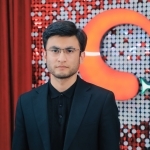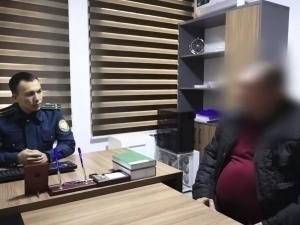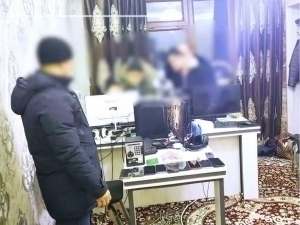Durov, Intelligence agencies, and the battle over free speech in Europe
Review
−
19 May 2025 9169 7 minutes
Telegram founder Pavel Durov has spoken out for the first time about what happened to him during his seven-month detention in France. And the details are highly significant. Durov's statement could spark a major political conflict in Europe, as it involves France—widely seen as a leading power on the continent—allegedly interfering in another country's internal affairs and attempting to influence its elections.
According to Durov, in the spring of this year, while staying at a hotel in Paris, the head of French intelligence, Nicolas Lerner, approached him and requested that Telegram suppress conservative voices in Romania ahead of the elections. Durov refused.
“A Western European government (guess which one?) approached Telegram with a request to silence conservative voices in Romania ahead of today’s presidential election. I flatly refused. Telegram does not restrict the freedoms of Romanian users or block their political channels. You cannot ‘protect democracy’ by destroying democracy. You cannot ‘fight election interference’ by interfering in elections. You may or may not have freedom of speech and fair elections. The Romanian people deserve both,” Durov wrote.
He added that Telegram would never engage in such practices in Europe, just as it did not in Russia, Belarus, or Iran.
In fact, Durov has faced intense pressure from the Russian government in the past for refusing to hand over user data. His refusal led him to leave VKontakte, the social media platform he created, and to denounce Russia.
For instance, during the 2011 Duma elections, the Russian authorities pressured VKontakte to delete opposition politicians’ pages. Durov stood his ground and refused. This marked the first major confrontation between him and the Kremlin. Over the years, tensions escalated. On April 1, 2014, Durov suddenly submitted his resignation to VKontakte’s board of directors. The main reason was his refusal to let VKontakte be used as a tool in Russia’s conflict with Ukraine.
Then, on April 16, 2014, he rejected a demand to hand over the personal data of Ukrainian protesters opposing the pro-Russian President Viktor Yanukovych to the Russian Federal Security Service. He also refused to block the VKontakte page of Alexei Navalny, a vocal critic of the Kremlin and a major headache for Putin. Just days later, on April 21, Durov was dismissed from his role as CEO of VKontakte. He stated that the company had effectively been taken over by people close to Vladimir Putin, and that his firing followed his refusal to give federal authorities access to user data.
Durov then left Russia, declaring that he had no intention of returning and that he no longer saw a future in the country’s internet business environment. Now, with Durov revealing on the social media platform X that French authorities made similar requests of him, he quickly received support from X owner Elon Musk. Musk responded to Durov’s post with the comment: “listen.” Musk himself has long been critical of European elections and their flaws.
Official Paris strongly denied the accusations and urged people to act responsibly and respect Romania’s democracy. The French Foreign Ministry stated that the claims circulating on Telegram and X about French interference in Romania’s presidential election are completely unfounded and categorically denied by France.
The Ministry also pointed out that the first round of the Romanian presidential election, held last December, had been annulled by Romanian authorities due to verified digital and financial interference by actors linked to Russia. Romanian investigations, backed by the European Commission, confirmed the severity of the interference, including manipulation of TikTok’s algorithm.
Romania’s Foreign Ministry also reported detecting “signs of Russian interference” in the election. They stated that a widespread fake news campaign had been carried out via Telegram and other social media platforms.
What happened in Romania?
Romania held its presidential election at the end of November last year. In the first round, Kelin Georgescu—seen as a pro-Russian candidate—emerged as the frontrunner. He attracted backlash due to his stance on suspending aid to Ukraine. Despite pre-election polls not predicting his success, Georgescu led the first round with nearly 23 percent of the vote. Trailing him was Elena Lasconi, the leader of the opposition party “Union for the Salvation of Romania,” known for supporting cooperation with NATO and the United States. Since no candidate secured over 50 percent of the vote, a second round was scheduled between Georgescu and Lasconi.
However, Romania’s Constitutional Court annulled the vote results after intelligence surfaced suggesting external influence in Georgescu’s favor. These included a coordinated campaign involving manipulated influencers on TikTok and over 85,000 cyberattacks. Intelligence indicated that Romania was the target of “aggressive” Russian hybrid tactics—ranging from cyberattacks and data leaks to sabotage. Consequently, Georgescu was arrested. He now faces charges of forming a fascist organization, attempting to undermine Romania’s constitutional order, and illegally financing an election campaign.
As mentioned earlier, French intelligence allegedly approached Durov in the spring with a request to suppress conservative content in Romania. Interestingly, the first round of the Romanian presidential election was held on May 4. In that round, liberal candidate Nicoshur Dan received only 21 percent of the vote. His main opponent, George Simion—a conservative—led with about 41 percent. Since neither secured over 50 percent, a runoff was held. In a surprising turn, liberal-progressive Bucharest mayor Nicoshur Dan won. After the ballots were counted, he received 54 percent, while Simion got 46 percent—despite leading the first round by 20 points.
How was Durov captured?
Last summer, Pavel Durov embarked on a trip through Central Asia. He later traveled through the Caucasus, ending his tour of the region. Following his visit to Baku, he was expected to continue to Pakistan or another eastern destination. But instead of flying to Karachi or Dhaka, his private jet was redirected to Paris. It was alleged that the pilots were compromised by Western intelligence agencies. At the border, reports claimed that the CIA and French services coordinated his detention.
On August 24, Durov was arrested at Le Bourget airport in Paris under multiple charges. The operation was reportedly codenamed “Dinner in Paris.” Initially, it was believed that his arrest was an attempt to strike at Russian communications systems. Russian officials were alarmed. Alexei Rogozin, chairman of the Ecolibri engineering center, said, “The arrest of Pavel Durov is like arresting the head of communications for the Russian Armed Forces.” He explained that during the ongoing war, Russia heavily relies on Telegram for intelligence data, artillery targeting, video streaming, and other communication.
Following this, instructions were reportedly issued to Russian government officials to delete any official correspondence conducted through Telegram. These orders reportedly reached law enforcement, the Presidential Administration, the government, senior Defense Ministry officers, and prominent businessmen.
In France, Durov was charged with refusing to provide requested information, complicity in the storage of child pornography, and involvement in drug distribution. Experts noted that he faced up to 20 years in prison under French law if convicted.
On August 28—four days after his arrest—Durov was released on bail of 5 million euros. However, he was banned from leaving France and required to check in with police twice a week. Thus, the pioneering social media innovator remained in France under restrictions for nearly seven months. On March 13 of this year, a French court lifted the travel ban, and Durov returned to Dubai.
Live
All



